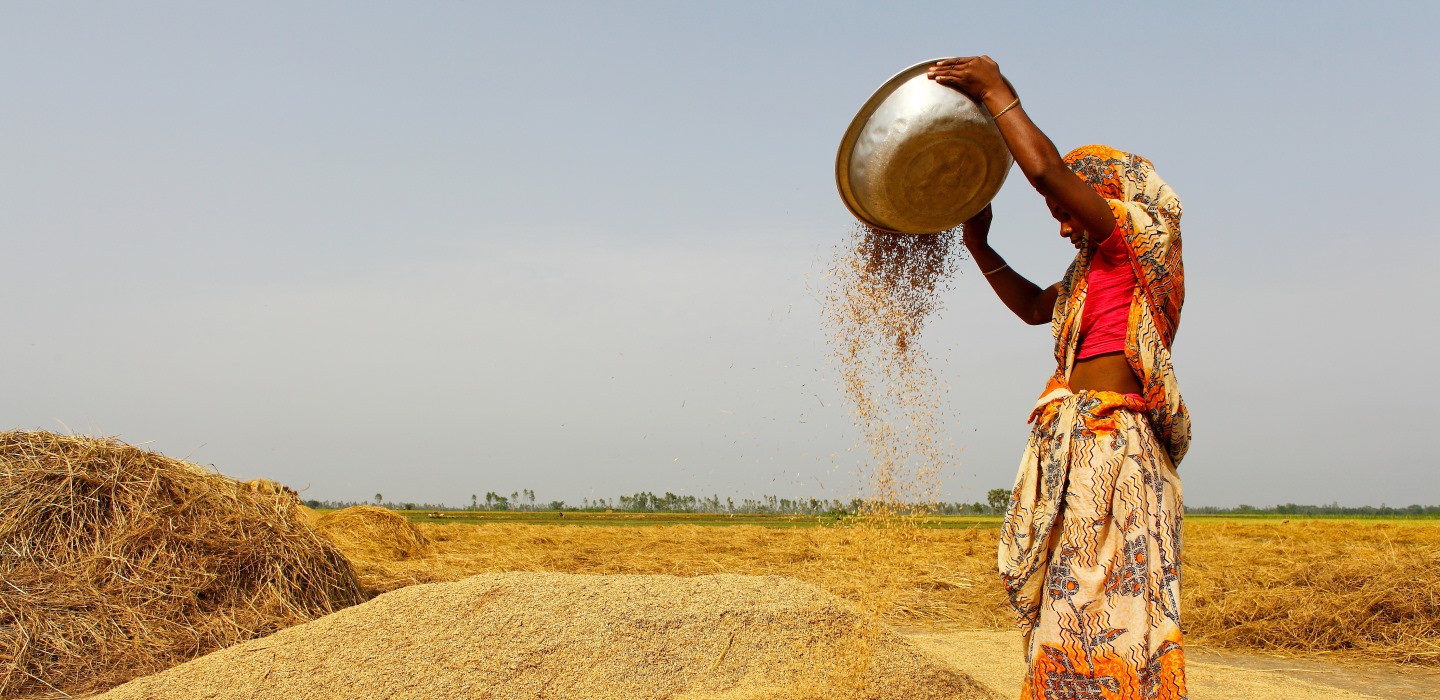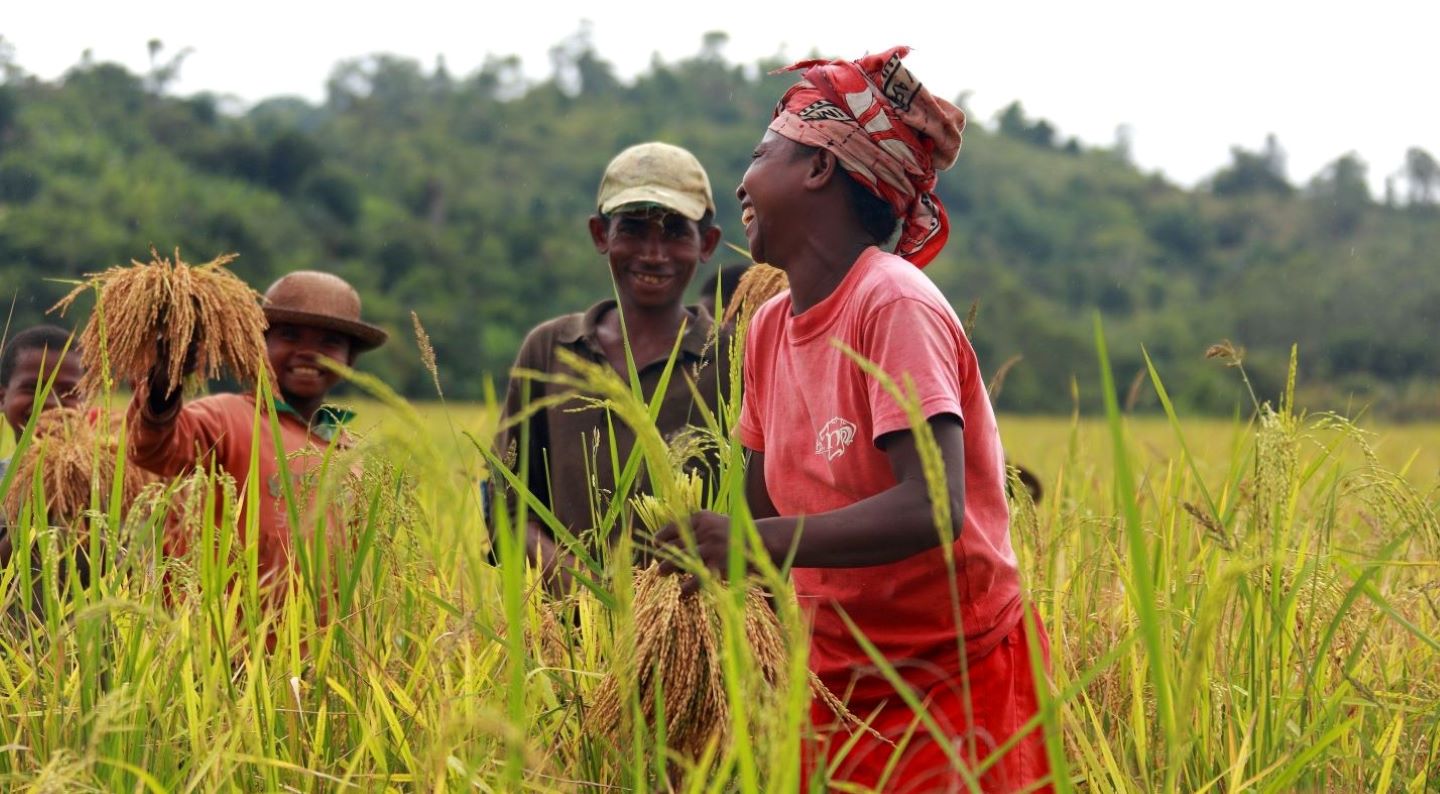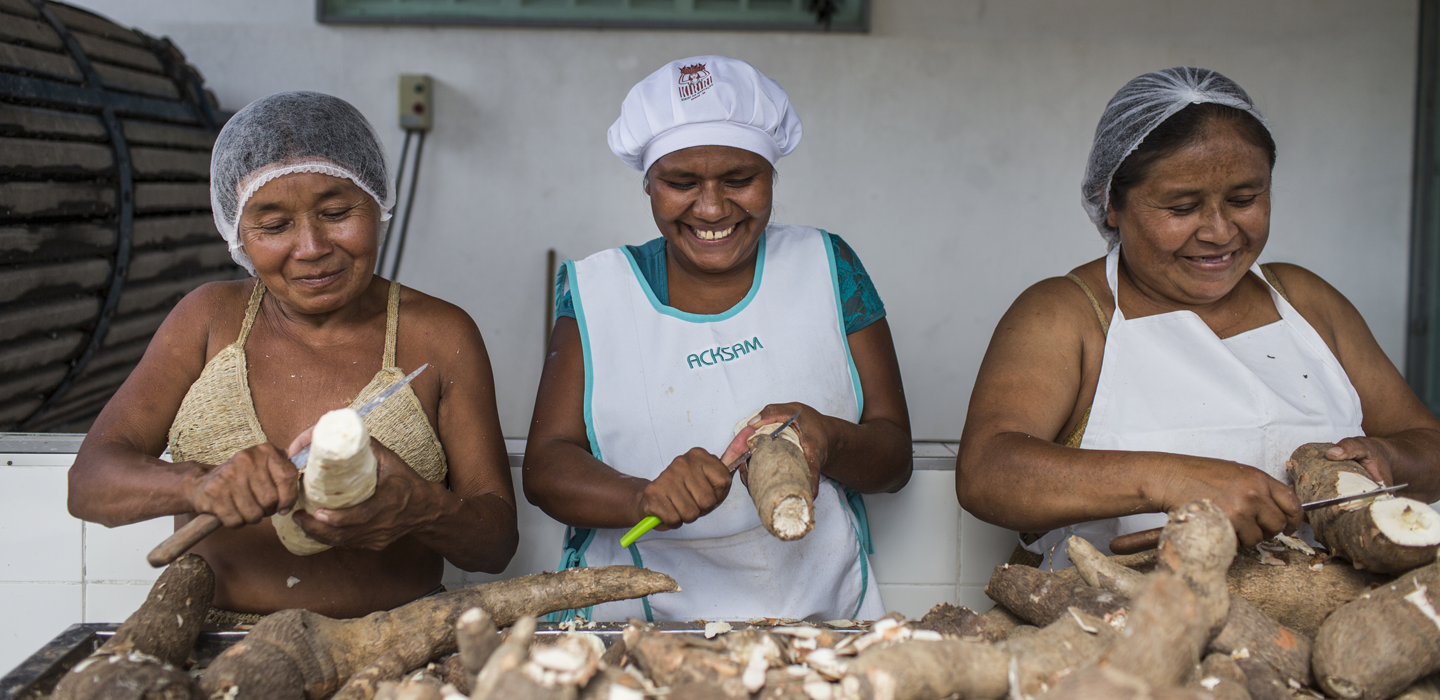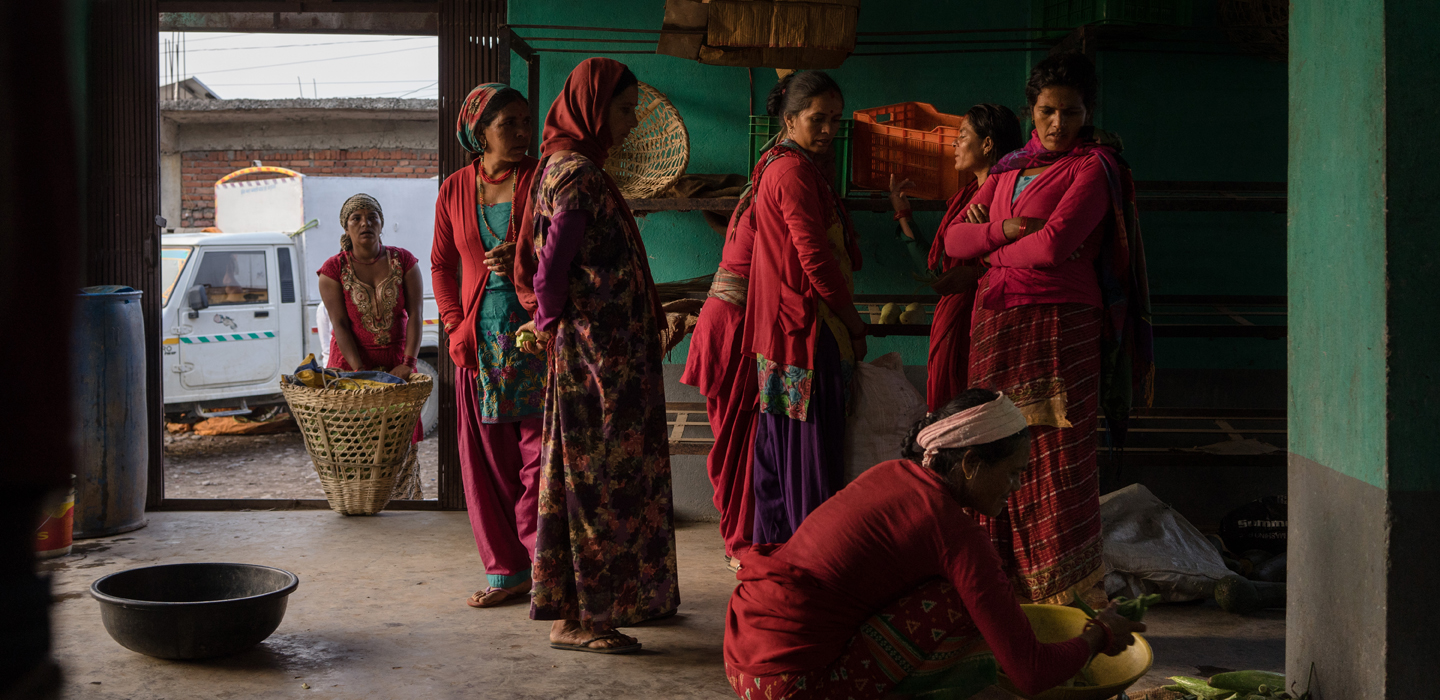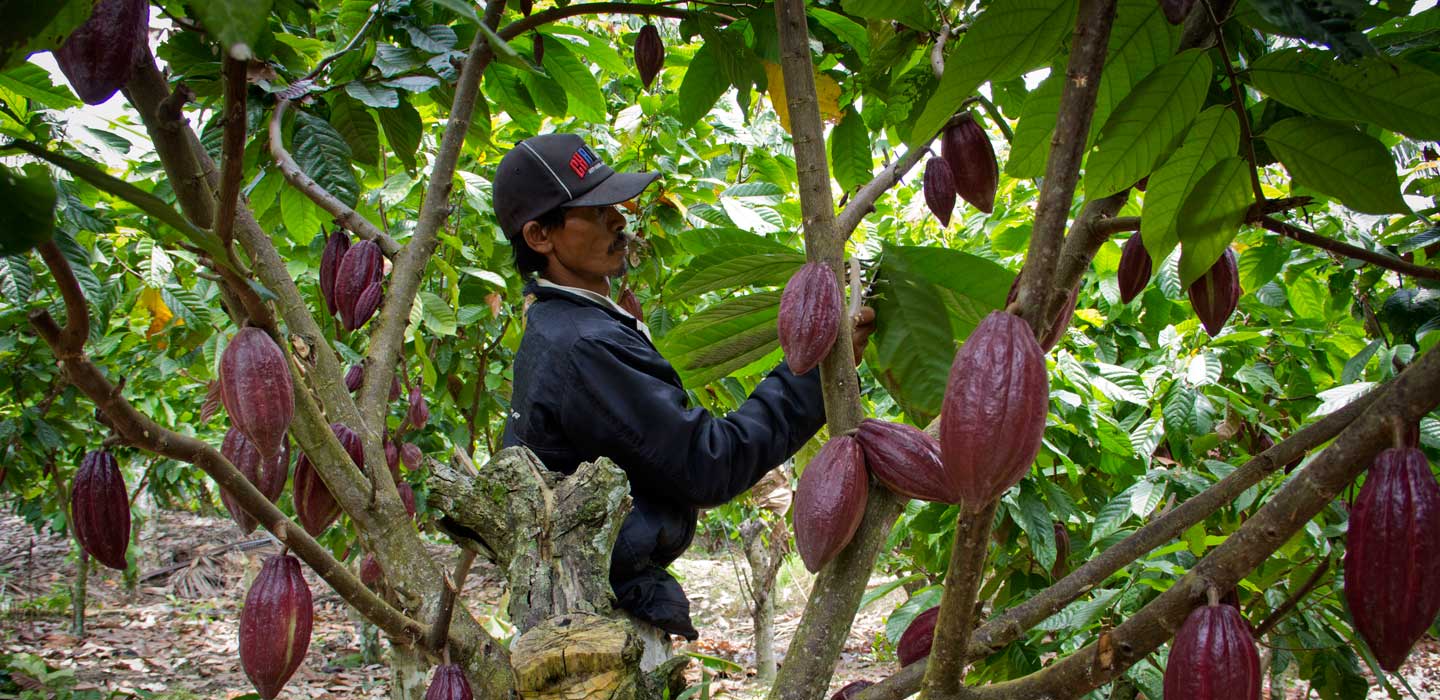crops
Crops
Smallholder farmers are the main producers of food globally and provide 60 to 80 per cent of the food produced in developing countries. As the world’s population grows, these farmers are under growing pressure to enhance their productivity and ensure food security, especially for the rural poor.
Yet numerous factors make farming increasingly difficult for them. These include climate variability and change, water scarcity and land degradation and high levels of post-harvest food losses.
Improving the soil, managing pests
Access to diverse agricultural technologies is key to ensuring smallholder farmers can continue to feed the world.
IFAD-supported projects help farmers to increase yields through enhanced soil and pest management, fertilizer use, access to better quality seeds, and other improved agricultural practices.
Our projects improve farmers’ access to input and output markets, as well as to rural financial services that will allow them to invest in their farms.
They also enhance the institutional capacities of farmer organizations to meet the needs of their members, while ensuring natural resources are managed properly and growth is sustainable.
Growing more food and developing new opportunities
Our approach to agriculture is context-specific. We strive to create opportunities for farmers at various levels with different assets, and for both women and men farmers.
We also support the growing number of rural youth, who frequently find themselves squeezed out of farming and are looking for alternative income sources.
In depth
In depth
Food loss reduction
Spotlight
Spotlight
Regenerative agriculture: from soil to sustainability – Episode 58
Hear from global leaders in regenerative agriculture – and learn how IFAD is leveraging their techniques to combat climate change in rural communities.
Stories and news
Stories and news
Regenerative agriculture: from soil to sustainability – Episode 58
Hear from global leaders in regenerative agriculture – and learn how IFAD is leveraging their techniques to combat climate change in rural communities.
A guide to the pulses that power our planet
Pulses are at the heart of thriving rural communities, and an essential ingredient for a sustainable future. Learn about some of these superfoods – and how to cook them with our Recipes for Change!
A year of rural stories
For countless people in IFAD-supported projects, 2023 was a year in which their lives changed. Here are some of the stories we told over the past 12 months.
Global Environment Facility tasks FAO and IFAD to lead new $230 million agrifood systems transformation program
The initiative aims to support shifts towards sustainable nature-positive production and efficient value chains for crops, commodities, livestock, and aquaculture.
Related publications
Related publications
IFAD Research Series 92: Climate Change Mitigation in the East and Southern Africa Region: An Economic Case for the Agriculture, Forestry and Land Use Sector
This report is a guide to shape investments by IFAD and other international donors in climate change mitigation actions in the East and Southern Africa region.
IFAD Research Series No. 89: Incorporating the Impact of Climate and Weather Variables in Impact Assessments: An Application to an IFAD Climate Change Adaptation Project in Viet Nam
This paper discusses which climate variables to collect, and from which sources, when incorporating them into an impact assessment.
What can smallholder farmers grow in a warmer world? Climate change and future crop suitability in East and Southern Africa
With funding from ASAP2, eight Climate Risk Analysis reports were produced by the University of Cape Town, covering Angola, Lesotho, Malawi, Mozambique, Rwanda, Uganda, Zambia and Zimbabwe.
